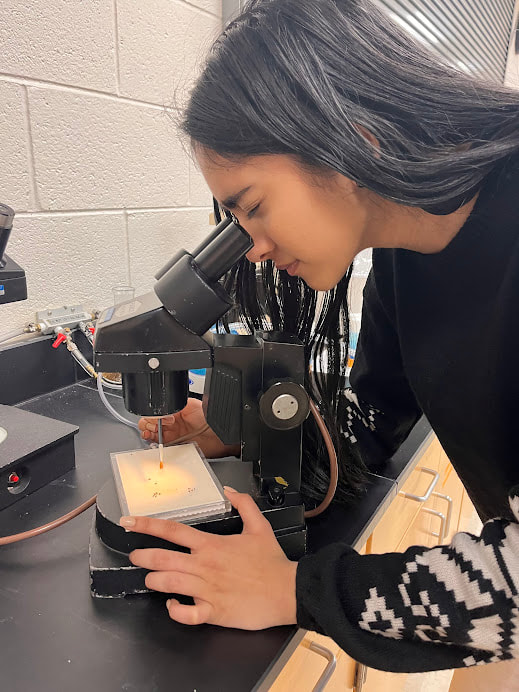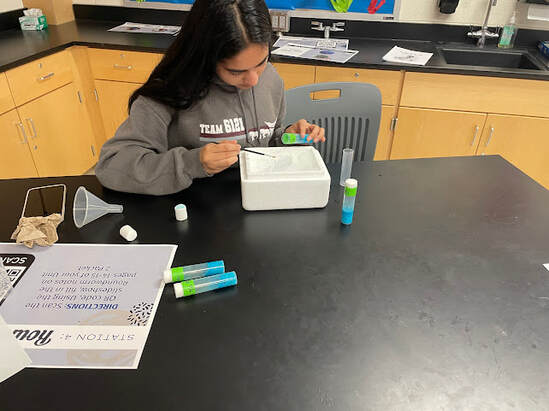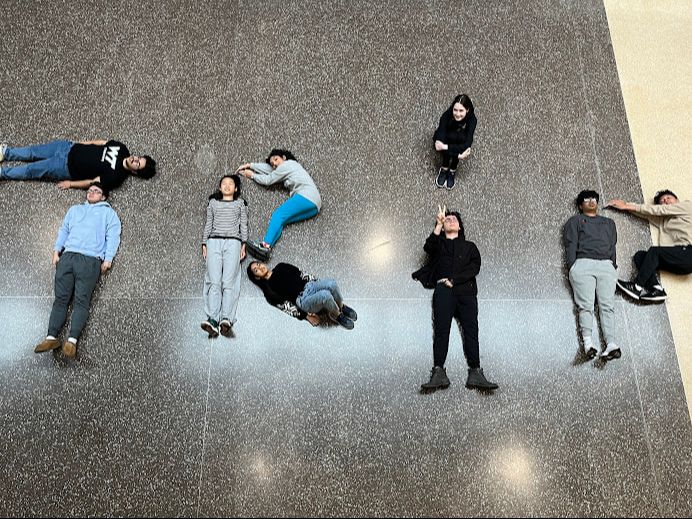As I mentioned in my previous blog, I decided to test how curcumin, a polyphenol found in turmeric, affects the inflammation caused by a high fat diet. After doing some research, I found that Americans get more than 50 percent of their calories from low-quality carbs and saturated fat (NIH). Knowing about curcumin’s anti-inflammatory effects, I wondered whether curcumin could lower the rate of fat-induced inflammation. To test this out, I used two different assays: negative geotaxis assay, and the smurf assay. The negative geotaxis assay is used to test the mobility of the flies and find out how active they are. For this assay, I sorted 10 adult male flies into a vial and tapped them down. Flies have a natural tendency to move away from the earth, so when they are tapped down, they will naturally start climbing up. To test how mobile the flies are, I quantified the number of flies that climbed past the halfway mark of the vial in 3 seconds. The mobility of the flies is inversely proportional to inflammation, meaning, the more active the flies are, the less inflammation they have. According to my results, on average, only 10% of the flies that were fed a high fat diet were mobile, while 30% of flies fed a HFD and curcumin were mobile. This shows that the flies that were fed a HFD and curcumin were less inflamed that the ones with just the high fat. But to get a more specific measurement of inflammation and not just mobility, I used the smurf assay. For this assay, I added safe blue food dye to the fly’s food. If the blue remains in the stomach and intestines, there is low intestinal permeability, meaning low inflammation. If the intestinal barriers are broken and the blue color has spread all over the body of the flies, this shows a high intestinal permeability, meaning more gut inflammation. My results showed that about 35% of flies that were fed a high fat diet were inflamed while only 15% of those that were fed both a HFD and curcumin were inflamed. Overall, this revealed that adding the recommended amount of turmeric (or curcumin) to your diet can help reverse the effects of fat-induced inflammation! Although I am sad that my time at TRIP is almost over, I am grateful for the experiences I have gained here and the life-long connections that I have made. I want to say a huge thanks to Dr. Purdy and Dr. Leystra, without whom this opportunity wouldn’t exist. They have opened my eyes to the world of scientific research and encouraged me even more to pursue a career in biomedical science. I also want to thank the TA’s Austin, Jenan, and Keith, who took time out of their Saturdays to help us have a wonderful time in the lab. Lastly I want to thank all of my TRIP peers for making this experience truly unforgettable. Thank you!
0 Comments
Your comment will be posted after it is approved.
Leave a Reply. |
Archives
April 2024
Categories
All
|



 RSS Feed
RSS Feed